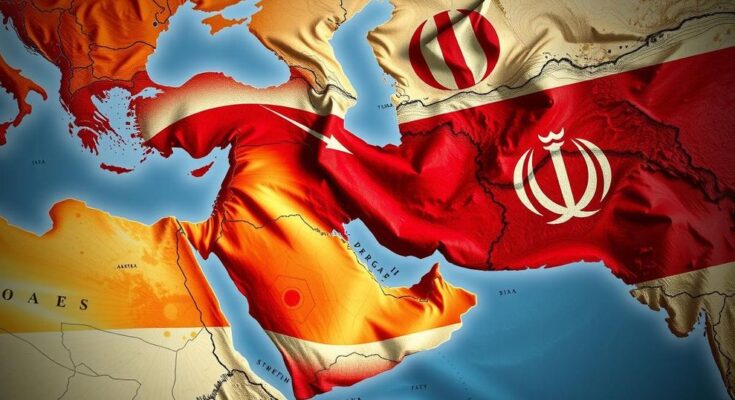Israel is confronted with persistent missile and drone attacks from Houthi rebels in Yemen, bolstered by Iranian support. Houthi operations threaten vital maritime trade routes through the Bab al-Mandab strait, prompting ineffective responses from multinational coalitions. Direct action against Iran is essential to mitigate Houthi aggression, which has evolved from a local insurgency to a powerful military force due to extensive Iranian resources and training. A robust strategy addressing both the Houthis and their Iranian backers is necessary for enduring regional stability.
Israel confronts a burgeoning threat from Iran-backed Houthi rebels in Yemen, facing continual missile and drone attacks that defy Israeli retaliatory measures. The crux of the issue lies in Iran’s steadfast support, providing the Houthis with military resources, training, and strategic direction. This external influence renders conventional military strategies ineffective, necessitating direct action against the Iranian regime as the most viable means of diminishing Houthi aggression.
The Houthi rebels have intensified their maritime campaign, threatening vital shipping lanes through the Bab al-Mandab strait, a crucial conduit for global trade. This disruption has caused significant operational adjustments for various shipping companies. Despite the intervention of a US-led multinational coalition aimed at curbing these assaults, the Houthi campaign shows no signs of abating, highlighting the ineffectiveness of existing strategies.
Israel has borne the brunt of Houthi assaults, responding with targeted strikes against strategic infrastructure. However, the unique challenges presented by Yemen—a territory characterized by rugged terrain and a closed ecosystem—complicate intelligence gathering and military operations. The Houthis, exhibiting a profound resilience bolstered by Iranian support, have adeptly maintained their capabilities despite continuous military pressure.
Since aligning with Iran’s Axis of Resistance in 2014, the Houthis have evolved from a local insurgency into a significant military power. Iranian resources, including advanced weaponry and training, have significantly enhanced their operational effectiveness, equipping them with the means to threaten both regional and international security.
The Iranian Revolutionary Guard Corps has systematically integrated the Houthis into a sophisticated military framework, equipping them with advanced ballistic missiles, naval capabilities, and comprehensive tactical training, allowing them to conduct complex military operations. This has enabled the Houthis to effectively challenge not only regional adversaries but also to extend their operational reach to targets such as Israel.
Moreover, Iran’s underlying strategy aims to fortify its influence in the region and integrate the Houthis into a broader anti-access/area-denial strategy, complicating US and ally mobilization efforts. As long as Iran continues to provide substantial support, the Houthis will remain an enduring threat capable of striking Israel and disrupting international maritime commerce.
Ultimately, addressing the Houthi menace requires a dual approach targeting both the rebels in Yemen and their benefactor in Iran. Without dismantling the Iranian support structure, efforts to mitigate Houthi aggression will likely remain futile.
The Houthi rebels, formally known as Ansar Allah, have emerged as a significant threat in the Middle East, particularly in connection with Iran’s military ambitions. This analysis examines the complexities surrounding the Houthis’ resilience, derived largely from Iranian support, which has transformed them from a regional insurgent group into a formidable military force. The situation is exacerbated by the geographical and operational challenges inherent in conducting military operations in Yemen, as well as the implications of disrupted maritime trade routes essential to global commerce.
In conclusion, Israel faces a profound strategic challenge due to the sustained attacks from the Iran-backed Houthis, whose military capabilities have been significantly enhanced by Iranian support. The complexities presented by Yemen’s terrain, alongside the Houthis’ integration in local communities and sophisticated military training, necessitate a reevaluation of military strategies. To effectively curb Houthi aggression and safeguard regional security, it becomes imperative to address the root causes of their empowerment, primarily through countering Iranian influence. Absent decisive action against Tehran, the ongoing Houthi threat will likely persist, jeopardizing both Israeli security and broader regional stability.
Original Source: www.jpost.com




